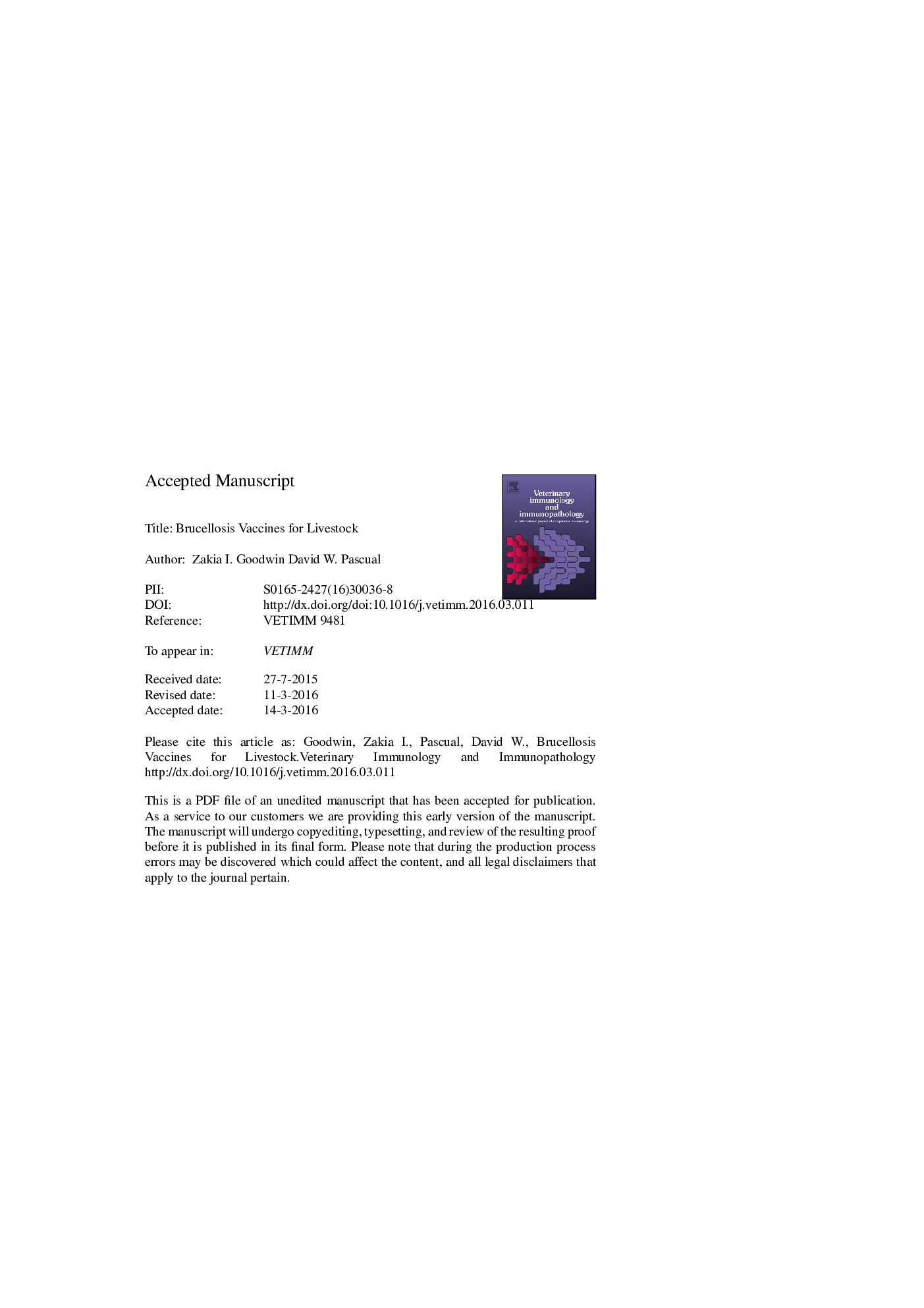| Article ID | Journal | Published Year | Pages | File Type |
|---|---|---|---|---|
| 5544808 | Veterinary Immunology and Immunopathology | 2016 | 30 Pages |
Abstract
Brucellosis is a livestock disease responsible for fetal loss due to abortions. Worldwide, this disease has profound economic and social impact by reducing the ability of livestock producers to provide an adequate supply of disease-free meat and dairy products. In addition to its presence in domesticated animals, brucellosis is harbored in a number of wildlife species creating new disease reservoirs, which adds to the difficulty of eradicating this disease. Broad and consistent use of the available vaccines would contribute in reducing the incidence of brucellosis. Unfortunately, this practice is not common. In addition, the current brucellosis vaccines cannot provide sterilizing immunity, and in certain circumstances, vaccinated livestock are not protected against co-mingling Brucella-infected wildlife. Given that these vaccines are inadequate for conferring complete protection for some vaccinated livestock, alternatives are being sought, and these include genetic modifications of current vaccines or their reformulations. Alternatively, many groups have sought to develop new vaccines. Subunit vaccines, delivered as a combination of soluble vaccine plus adjuvant or the heterologous expression of Brucella epitopes by different vaccine vectors are currently being tested. New live attenuated Brucella vaccines are also being developed and tested in their natural hosts. Yet, what is rarely considered is the route of vaccination which could improve vaccine efficacy. Since Brucella infections are mostly transmitted mucosally, mucosal delivery of a vaccine has the potential of eliciting a more robust protective immune response for improved efficacy. Hence, this review will examine these questions and provide the status of new vaccines for livestock brucellosis.
Related Topics
Life Sciences
Agricultural and Biological Sciences
Animal Science and Zoology
Authors
Zakia I. Goodwin, David W. Pascual,
